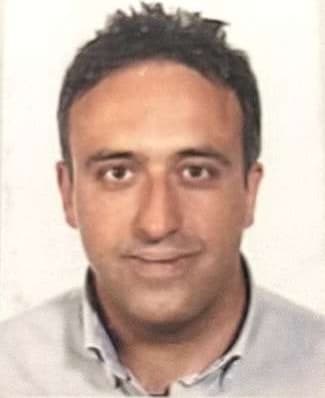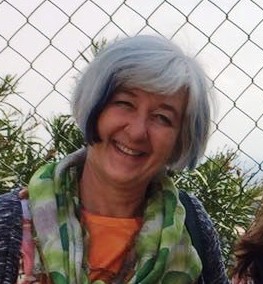Studying at the University of Verona
Here you can find information on the organisational aspects of the Programme, lecture timetables, learning activities and useful contact details for your time at the University, from enrolment to graduation.
Academic calendar
The academic calendar shows the deadlines and scheduled events that are relevant to students, teaching and technical-administrative staff of the University. Public holidays and University closures are also indicated. The academic year normally begins on 1 October each year and ends on 30 September of the following year.
Course calendar
The Academic Calendar sets out the degree programme lecture and exam timetables, as well as the relevant university closure dates..
| Period | From | To |
|---|---|---|
| I semestre (Lingue e letterature straniere) | Sep 28, 2020 | Jan 9, 2021 |
| II semestre (Lingue e letterature straniere) | Feb 15, 2021 | May 29, 2021 |
| Session | From | To |
|---|---|---|
| ESAMI LINGUE - sessione invernale | Jan 11, 2021 | Feb 13, 2021 |
| ESAMI LINGUE - sessione estiva | May 31, 2021 | Jul 24, 2021 |
| ESAMI LINGUE - sessione autunnale | Aug 30, 2021 | Sep 25, 2021 |
| Session | From | To |
|---|---|---|
| LAUREE LINGUE - sessione autunnale (a.a. 2019/20) | Nov 2, 2020 | Nov 7, 2020 |
| LAUREE LINGUE - sessione straordinaria (a.a. 2019/20) | Apr 7, 2021 | Apr 13, 2021 |
| LAUREE LINGUE - sessione estiva (a.a. 2020/21) | Jul 5, 2021 | Jul 10, 2021 |
| Period | From | To |
|---|---|---|
| Festa di Ognissanti | Nov 1, 2020 | Nov 1, 2020 |
| Festa dell'Immacolata | Dec 8, 2020 | Dec 8, 2020 |
| Festa della liberazione | Apr 25, 2021 | Apr 25, 2021 |
| Festa del lavoro | May 1, 2021 | May 1, 2021 |
| Festa del Santo Patrono | May 21, 2021 | May 21, 2021 |
| Festa della Repubblica | Jun 2, 2021 | Jun 2, 2021 |
Exam calendar
Exam dates and rounds are managed by the relevant Foreign Languages and Literatures Teaching and Student Services Unit.
To view all the exam sessions available, please use the Exam dashboard on ESSE3.
If you forgot your login details or have problems logging in, please contact the relevant IT HelpDesk, or check the login details recovery web page.
Academic staff
 sara.paolini@univr.it
sara.paolini@univr.it
 daniela.spina@univr.it
daniela.spina@univr.it
Study Plan
The Study Plan includes all modules, teaching and learning activities that each student will need to undertake during their time at the University.
Please select your Study Plan based on your enrollment year.
1° Year
| Modules | Credits | TAF | SSD |
|---|
1st foreign language2nd foreign language1st foreign literature 1 LM. Forms, genres and critical approaches2nd foreign literature 1 LM. Forms, genres and critical approaches2° Year activated in the A.Y. 2021/2022
| Modules | Credits | TAF | SSD |
|---|
1st foreign literature disciplinary area2nd foreign literature disciplinary area or textual and comparative studies1st or 2nd foreign literature 2 LM. Critical methodologies and textual interpretationA philology to be chosen among the following (philology must be related to one of the chosen languages)History of the 1st or the 2nd foreign language| Modules | Credits | TAF | SSD |
|---|
1st foreign language2nd foreign language1st foreign literature 1 LM. Forms, genres and critical approaches2nd foreign literature 1 LM. Forms, genres and critical approaches| Modules | Credits | TAF | SSD |
|---|
1st foreign literature disciplinary area2nd foreign literature disciplinary area or textual and comparative studies1st or 2nd foreign literature 2 LM. Critical methodologies and textual interpretationA philology to be chosen among the following (philology must be related to one of the chosen languages)History of the 1st or the 2nd foreign language| Modules | Credits | TAF | SSD |
|---|
Legend | Type of training activity (TTA)
TAF (Type of Educational Activity) All courses and activities are classified into different types of educational activities, indicated by a letter.
Type D and Type F activities
| years | Modules | TAF | Teacher |
|---|---|---|---|
| 1° 2° | Laboratorio di introduzione alle metodologie e tecnologie didattiche - Lingua e cultura francese | F |
Maria Francesca Bonadonna
(Coordinator)
|
| 1° 2° | Laboratorio di introduzione alle metodologie e tecnologie didattiche - Lingua e cultura inglese | F |
Paola Vettorel
(Coordinator)
|
| 1° 2° | Laboratorio di introduzione alle metodologie e tecnologie didattiche - Lingua e cultura spagnola | F |
Francesca Dalle Pezze
(Coordinator)
|
| 1° 2° | Laboratorio di introduzione alle metodologie e tecnologie didattiche - Lingua e cultura tedesca | F |
Sibilla Cantarini
(Coordinator)
|
To discover all the teaching activities accredited by the foreign teaching college click here
Textual and comparative studies (2021/2022)
Teaching code
4S006146
Teacher
Coordinator
Credits
6
Language
English
Scientific Disciplinary Sector (SSD)
L-FIL-LET/14 - CRITICAL COMPARATIVE LITERATURE
Period
II semestre (Lingue e letterature straniere) dal Feb 14, 2022 al May 28, 2022.
Learning outcomes
The learning outcomes of the class “Textual and com-parative studies” LM37 lead students to acquire a deep knowledge of the historical, cultural, and literary context in comparison and contrast related to the subject imparted; they aim to give useful information to comment, contextualize text belonging to different literary genre, as well as to develop advanced analysis skills. They also aim at shaping students’ comparative skills, in terms of methodology, regarding mostly the interpretation of text, critical analysis, and the hermeneutic circle. The class is designed to focus on a systematic comparison rooted in its originally of both being monumentum and documentum. At the end of the course, the student must demonstrate that s/he has gained highly specialized knowledge, regarding the ability of understanding (knowledge and understanding); to have totally acquired a mastery of the research method associated with the specific field of investigation; finally, having the ability to integrate knowledge and manage complexity with a high degree of autonomy in broader (or interdisciplinary) contexts (communication skills).
Program
A tide of rhetoric: tropologies of Indian Ocean literatures
The course in Textual and Comparative Studies offers a critical reading of texts from different contemporary literatures from the Indian Ocean space. We will focus on tropologies, that is, the use of tropes and figures of speech such as periphrasis, metaphor, catachresis, and allegory. After framing each literary work in its context of production (namely, Tanzania, Madagascar, Mauritius, Sri Lanka, and India), through the practice of close reading, we will learn to identify the most recurring rhetorical figures in the representation of specific problems of the contemporary world, such as the colonial condition and the processes of cultural decolonisation, migration and linguistic boundaries, pollution and climate change. Finally, from the text, we will go back to the context and reflect on the global impact of those literary works and the humanitarian purpose of literature.
Teaching methods:
The course consists of lectures (60%) and seminar lessons (40%). The lectures will introduce students to theoretical and methodological texts. During the seminar lessons, students will be required to put into practice the method of close reading on literary texts. Furthermore, students are invited to make reading proposals according to their scientific interests or literary tastes and to privilege, whenever possible, the reading of the texts in their original language. Regarding bibliographic sources that are not accessible at the university libraries, the teacher will make them available to students in digital format. In the presence of a non-Italian-speaking audience, the course will be delivered in English.
Bibliography
Examination Methods
The final work is a critical essay (about 6000 words, including bibliography and notes) in which students must put into practice the theoretical and methodological tools learned during the course. Students will be asked to compare two or more literary texts of their choice from the bibliographic list or others which are relevant to their linguistic training interests. Alternatively, students can opt for the writing of a theoretical essay. The work will be discussed in an oral exam, where students must defend their positions and relate their statements to the topics discussed during the course. The essay must be delivered up to two weeks before the exam date and written in Italian or English. Non-attending students will be asked for extra readings (contact the teacher).
References
Theory
Moradewun Adejunmobi (2009). “Claiming the field: Africa and the space of Indian Ocean literature”. In Callaloo, vol. 32, n. 4, pp. 1247-1261.
Marina Carter e Khal Torabully (2002). Coolitude: an anthology of the Indian labour diaspora. Londra: Anthem Press, pp. 1-16, 143-159.
Rainer Guldin (2020). Metaphors of multilingualism. Changing attitudes towards language diversity in Literature, Linguistics and Philosophy. Londra: Routledge (selected chapters).
Felicity Hand (2012). “Becoming foreign: tropes of migrant identity in three novels by Abdulrazak Gurnah”. In Jonathan Sell (org.). Metaphor and diaspora in Contemporary Writing. Londra: Palgrave Macmillan, pp. 39-58.
Isabel Hofmeyr (2007). “The Black Atlantic meets the Indian Ocean: forging new paradigms of transnationalism for the Global South – literary and cultural perspectives”. In Social Dynamics: a journal of African Studies, vol. 33, nº 2, pp. 3-32.
Shanti Moorthy. Ashraf Jamal (org.) (2010). Indian Ocean Studies: cultural, social and political perspectives. New York e Londra: Routledge, pp. 1-31.
Literature
Poetry
Haji Gora Haji (2020). Shuwari. (selection of poems in Swahili translated to English)
R.V. Pandit (1971). My Goa and other poems. (selection of poems in Marathi translated to English)
Jean-Joseph Rabearivelo (1967). Vieilles chansons des pays d'Imerina.
- (1934). Presque-Songes.
Khal Torabully (1992). Cale d'étoiles: Coolitude.
Fiction
Amitav Ghosh (2004). The hungry tide.
Romesh Gunesekera (1994). Reef.
- (1992) Monkfish Moon (selection of short stories)
Abdulrazak Gurnah (2001). By the sea.
Career prospects
Module/Programme news
News for students
There you will find information, resources and services useful during your time at the University (Student’s exam record, your study plan on ESSE3, Distance Learning courses, university email account, office forms, administrative procedures, etc.). You can log into MyUnivr with your GIA login details: only in this way will you be able to receive notification of all the notices from your teachers and your secretariat via email and soon also via the Univr app.
Student login and resources
Gestione carriere
Attività accreditate D/F
Calendario didattico dettagliato
Competenze linguistiche (prima e seconda lingua)
Language skills
Compilazione del piano didattico
Corso di Lingua portoghese
Double degree
The University of Verona, through a network of agreements with foreign universities, offers international courses that enable students to gain a Double/Joint degree at the time of graduation. Indeed, students enrolled in a Double/Joint degree programme will be able to obtain both the degree of the University of Verona and the degree issued by the Partner University abroad - where they are expected to attend part of the programme -, in the time it normally takes to gain a common Master’s degree. The institutions concerned shall ensure that both degrees are recognised in the two countries.
Places on these programmes are limited, and admissions and any applicable grants are subject to applicants being selected in a specific Call for applications.
The latest Call for applications for Double/Joint Degrees at the University of Verona is available now!
Documents
| Title | Info File |
|---|---|
|
|
pdf, it, 316 KB, 28/09/23 |
|
|
octet-stream, it, 22 KB, 28/09/23 |
|
|
pdf, it, 520 KB, 28/09/23 |
Erasmus+ e altre esperienze all'estero
Linguistic training CLA
Percorso verso l'insegnamento
Una delle possibilità per gli studenti dopo il conseguimento della laurea magistrale è l’insegnamento nella scuola: l’Università degli Studi di Verona è tra gli enti accreditati dal MIUR per l'erogazione di corsi di formazione e aggiornamento e qualificazione delle competenze per insegnanti. Il percorso per diventare insegnante è legato alle seguenti condizioni:
1a CONDIZIONE
Il possesso della laurea magistrale o a ciclo unico, oppure diploma di II livello dell’alta formazione artistica, musicale e coreutica, oppure titolo equipollente o equiparato, coerente con le classi di concorso vigenti alla data di indizione del concorso; il futuro insegnante dovrà, inoltre, soddisfare i requisiti di accesso previsti per la classe di concorso scelta.
Per le classi di concorso:
- A-24 (Lingue e culture straniere negli istituti di istruzione secondaria di II grado) e
- A-25 (Lingua inglese e seconda lingua comunitaria nella scuola secondaria I primo grado)
sono previsti i seguenti requisiti di accesso (vedi l’allegato A al DM 259/2017):
1) 18 CFU nei settori scientifico disciplinari L-LIN/01 e/o L-LIN/02
2) 36 CFU della lingua di specializzazione scelta
3) 24 CFU della letteratura relativa alla lingua di specializzazione scelta.
I requisiti specifici delle classi di concorso A-24 e A-25 possono essere soddisfatti nell’ambito dei piani didattici o negli esami a scelta libera superati all’interno del percorso di studio universitario (Laurea Triennale e Magistrale), oppure attraverso l’iscrizione a corsi singoli.
Il requisito relativo alla lingua di specializzazione (2) è soddisfatto (sulla base degli esami previsti nel piano didattico) nell’ambito del percorso formativo che comprende una laurea triennale dell’area di Lingue e Letterature Straniere, seguita da una laurea magistrale della medesima area (qualsiasi Corso di Laurea triennale e magistrale dell’area di Lingue e Letterature Straniere).
Per verificare i requisiti relativi alla letteratura di specializzazione (3) e agli insegnamenti di linguistica che appartengono ai settori scientifico-disciplinari di L-LIN/01 e L-LIN/02 (1), invece, gli studenti sono invitati a consultare il proprio piano didattico per verificare il numero di CFU previsti nel percorso formativo.
2a CONDIZIONE
Il possesso dei 24 crediti formativi universitari o accademici acquisiti in forma curricolare, aggiuntiva o extra curricolare nelle discipline antropo-psico-pedagogiche e nelle metodologie e tecnologie didattiche, garantendo comunque il possesso di almeno 6 CFU conseguiti in ciascuno di almeno tre dei seguenti quattro ambiti disciplinari:
1) pedagogia;
2) pedagogia speciale e didattica dell’inclusione;
3) psicologia; antropologia;
4) metodologie e tecnologie didattiche.
Percorso formativo 24 CFU
Consente di acquisire uno dei requisiti di partecipazione al concorso nazionale per l’accesso al “percorso annuale di formazione iniziale e prova” su posti comuni e di sostegno, ai sensi del D.Lgs 13 aprile 2017, n. 59 come modificato dalla legge n.145 del 30/12/2018 (c. dal 792 al 796).
I settori scientifico disciplinari, gli obiettivi formativi, le modalità organizzative e gli eventuali costi sono stati stabiliti dal D.M. 10 agosto 2017, n. 616.
Per sapere quali insegnamenti della propria carriera vengano automaticamente riconosciuti si rimanda alla pagina del sito di Ateneo dedicata al percorso formativo 24 CFU.
Si consiglia agli interessati di consultare la pagina https://www.univr.it/it/i-nostri-servizi/futuri-studenti/post-laurea/formazione-degli-insegnanti in costante aggiornamento, in particolare sezione documenti in cui vengono pubblicati formulari, programmi degli insegnamenti ed elenchi di studenti ammessi.
Tra gli insegnamenti automaticamente riconosciuti nell’ambito dei 24 CFU vi sono: Insegnamento delle lingue (L-LIN/02) e Apprendimento delle lingue (L-LIN/02), previsti nel piano didattico del curriculum Linguistico-didattico del CdS di Lingue e letterature straniere (LLS).
Gli studenti immatricolati nel CdS di LLS che hanno scelto i curricula Letterario e Artistico possono comunque inserire tali insegnamenti nel piano di studi come crediti D (a scelta libera).
Gli studenti immatricolati negli altri CdS triennali del Dipartimento di Lingue e letterature straniere (Lingue e culture per il turismo e il commercio internazionale; Lingue e culture per l’editoria [a esaurimento]; Lingue e letterature per l’editoria e i media digitali) posso inserire tali insegnamenti nella propria carriera solo su eventuale autorizzazione preventiva del Presidente del Collegio Didattico (mediante Help desk).
Il soddisfacimento della 1a e 2a condizione è requisito obbligatorio per partecipare ai concorsi di abilitazione o specifici percorsi post lauream previsti dal Ministero.
Graduation
Stage e tirocini
Le attività di stage sono finalizzate a far acquisire allo studente una conoscenza diretta in settori di particolare interesse per l’inserimento nel mondo del lavoro e per l’acquisizione di abilità professionali specifiche.
Le attività di stage sono svolte sotto la diretta responsabilità di un singolo docente presso studi professionali, enti della pubblica amministrazione, aziende accreditate dall’Ateneo veronese.
I crediti maturati in seguito ad attività di stage saranno attribuiti secondo quanto disposto nel dettaglio dal “Regolamento d’Ateneo per il riconoscimento dei crediti maturati negli stage universitari” vigente.
- Tutte le informazioni in merito agli stage per futuri studenti sono disponibili alla pagina Stage e tirocini.
- Tutte le informazioni in merito agli stage per studenti iscritti sono pubblicate in MyUnivr - come fare per - stage e tirocini.
- Tutte le informazioni in merito agli stage per le aziende sono disponili alla pagina Stage e tirocini per azienze.
Ulteriori informazioni al seguente link https://www.univr.it/it/i-nostri-servizi/gestione-carriere-studenti-lingue-e-letterature-straniere/stage-e-tirocini-lingue-e-letterature-straniere

 +39 045802 8409
+39 045802 8409



























